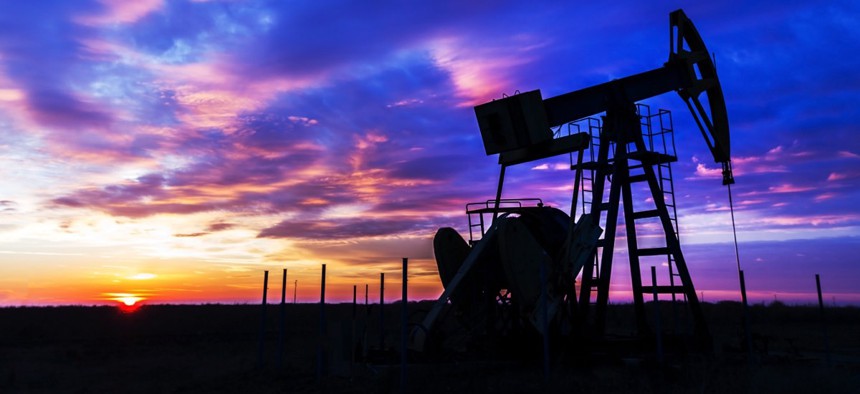Following Texas, Oklahoma Leaders Look to Ban Fracking Bans, Too

Calin Tatu / Shutterstock.com

Connecting state and local government leaders
The Sooner State’s House speaker says local governments don’t have the expertise to regulate the oil and gas industry.
Local governments would be unable to ban hydraulic fracturing, or other oil and gas activities, under a bill the Oklahoma Legislature sent to Gov. Mary Fallin’s desk late last week.
Passage of the legislation came just days after Texas Gov. Greg Abbott signed a bill into law that stops municipalities in the Lone Star State from prohibiting oil and gas operations. Residents in Denton, located in North Texas, had voted last November to ban hydraulic fracturing, or “fracking” within the city's limits.
The Oklahoma legislation, S.B. 809, would allow counties and cities to enact “reasonable ordinances” on oil and gas operations so long as they’re related to issues such as traffic, noise, odors and the distance between well-sites and nearby property.
But outright bans are not permitted on activities including exploration, drilling, fracking, production, well abandonment, water disposal or pipeline building. These areas would be left to the Oklahoma Corporation Commission, a state regulatory agency.
Backers of the bill said the legislation would prevent a patchwork of regulations around the state and would also help protect mineral owners’ property rights. Key supporters included oil and gas companies and the State Chamber of Oklahoma.
Critics of the legislation questioned whether it was an infringement on the ability of local jurisdictions to govern issues that fall within their boundaries.
The bill spurred some standoffish debate at the Oklahoma State Capitol.
"Wouldn't it be best for the lives and the properties in your hometown, if they could solve the problems and save their lives and their properties, if they could do it at city hall, instead of having to come down here to the Corporation Commission," Rep. Scott Inman asked during floor remarks on April 22. A Democrat, who represents areas in and around Oklahoma City, Inman directed the question at one of the bill’s co-authors, House Speaker Jeffrey Hickman.
"Couldn't disagree with you more," Hickman shot back in response. He argued that, compared to localities, the commission has a better grasp on oil and gas research and science.
"That's expertise that our small towns don't have," said the House speaker, a Republican who serves a district just east of the Oklahoma panhandle.
Much of Inman’s criticism of the bill was tied to concerns about earthquakes.
There is some evidence that the disposal process for water that gets pumped to the earth’s surface along with oil and gas could be causing tremblors in Oklahoma. To get rid of this “produced water” oil and gas operators commonly inject it deep underground.
The interim director of the state’s Geological Survey, Richard Andrews, pointed to that injection process as the suspected culprit behind a recent uptick in Oklahoma quakes in a statement issued last month. “The seismicity rate is now about 600 times greater than the background seismicity rate, and is very unlikely the result of a natural process,” he said.
The city of McAlester, Oklahoma, has prohibited oil and gas drilling activities for decades.
The mayor of the city, Steve Harrison, wrote a letter to the McAlester News-Capital in early April questioning the need for a now-dead House bill, which resembled the Senate bill that won approval. It would have also barred local bans on oil and gas drilling.
Harrison called the House legislation a “‘one-size-fits-all’ solution to a problem that, for McAlester, does not exist.”
“We already have all the access the industry needs and we have a city that is unblemished by drilling rigs and oil wells,” the mayor added, noting that modern drilling techniques have made it possible for oil and gas under McAlester to be accessed with wellheads located outside the city’s limits.

NEXT STORY: Virginia community colleges pilot open textbooks





